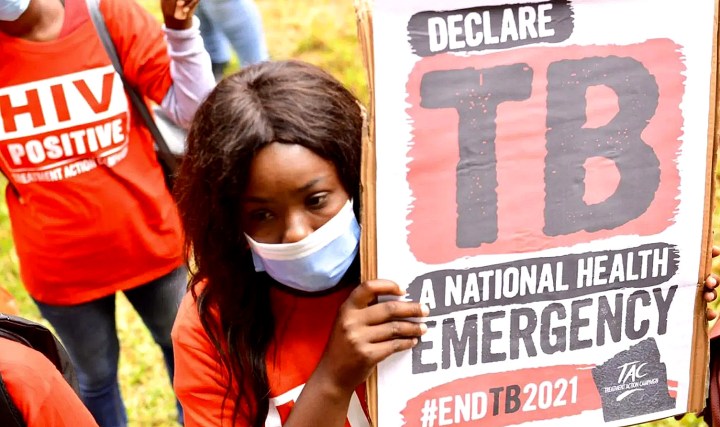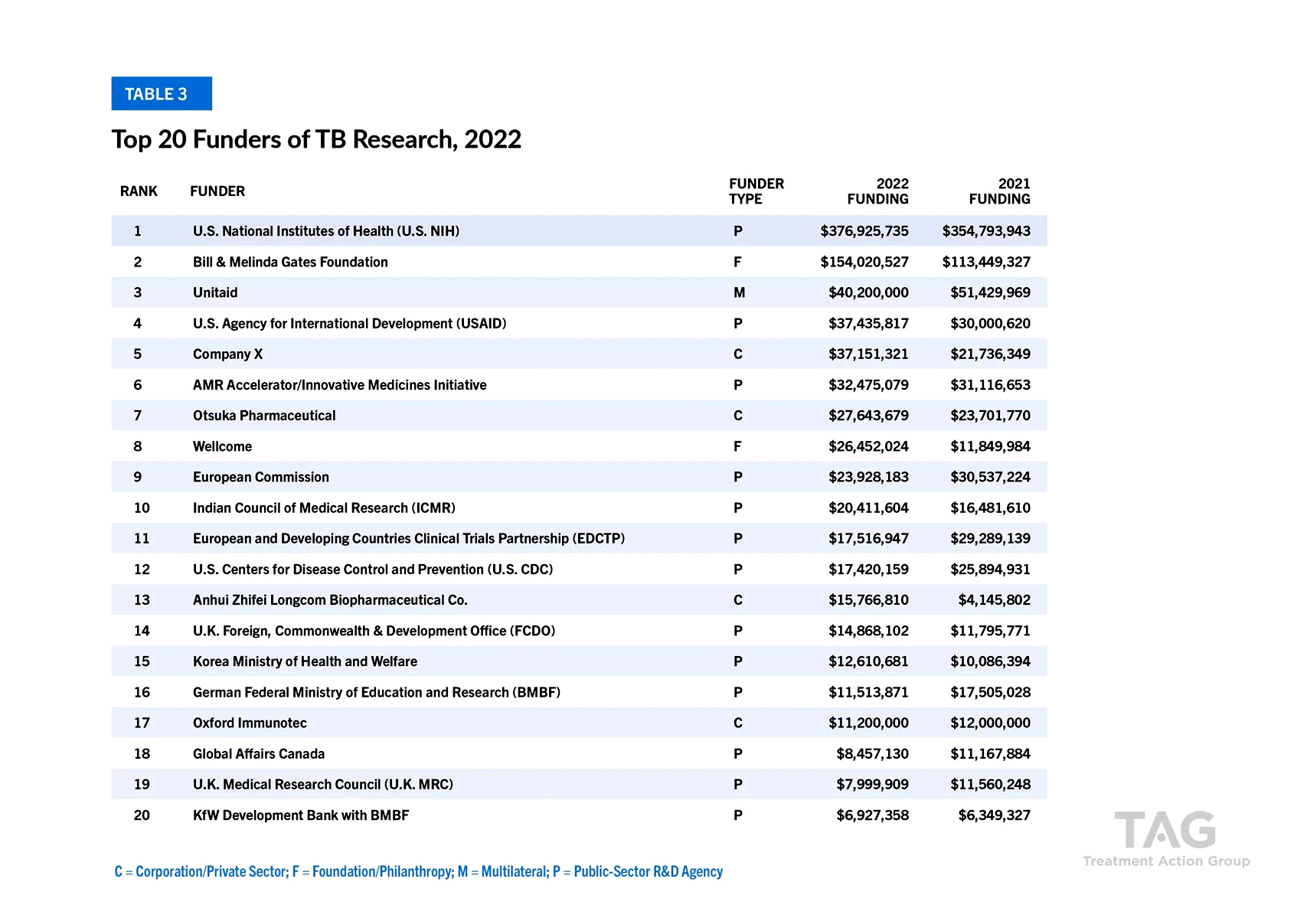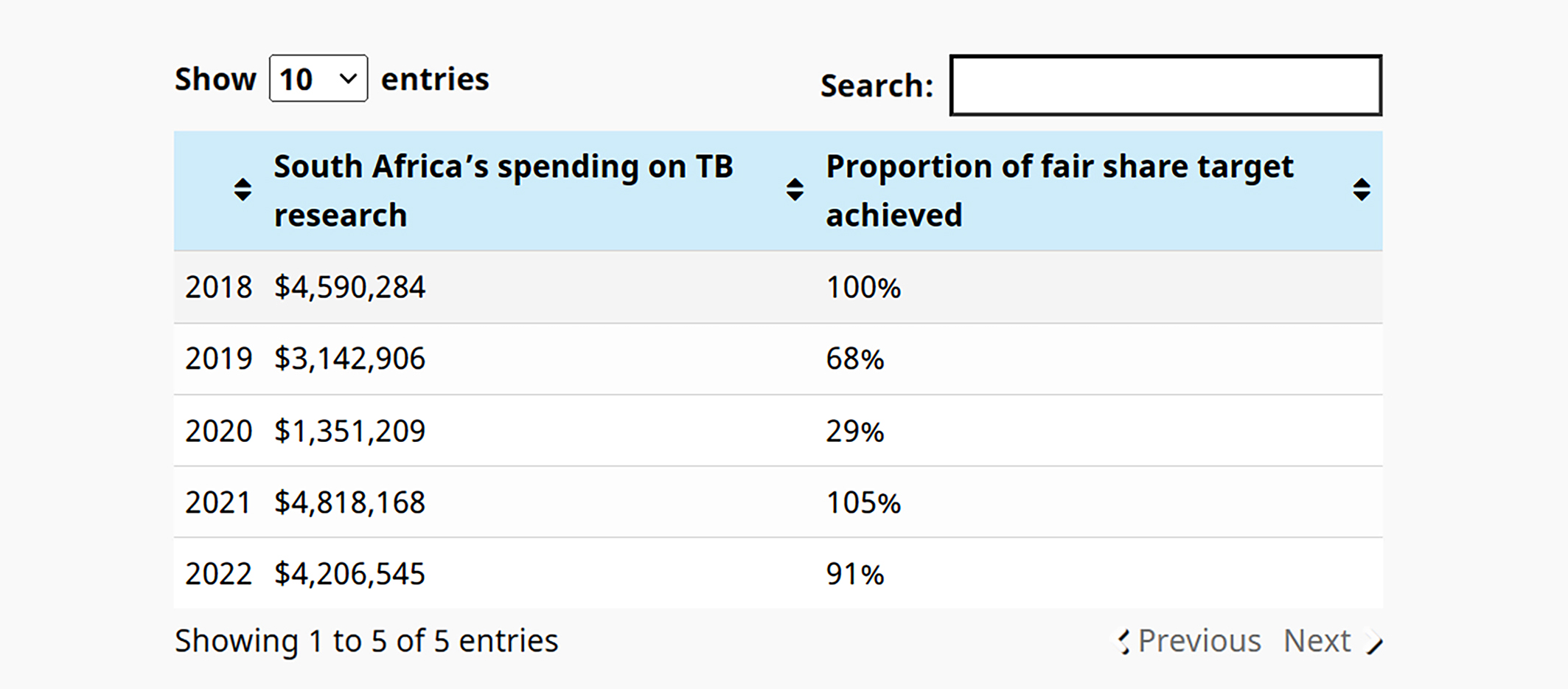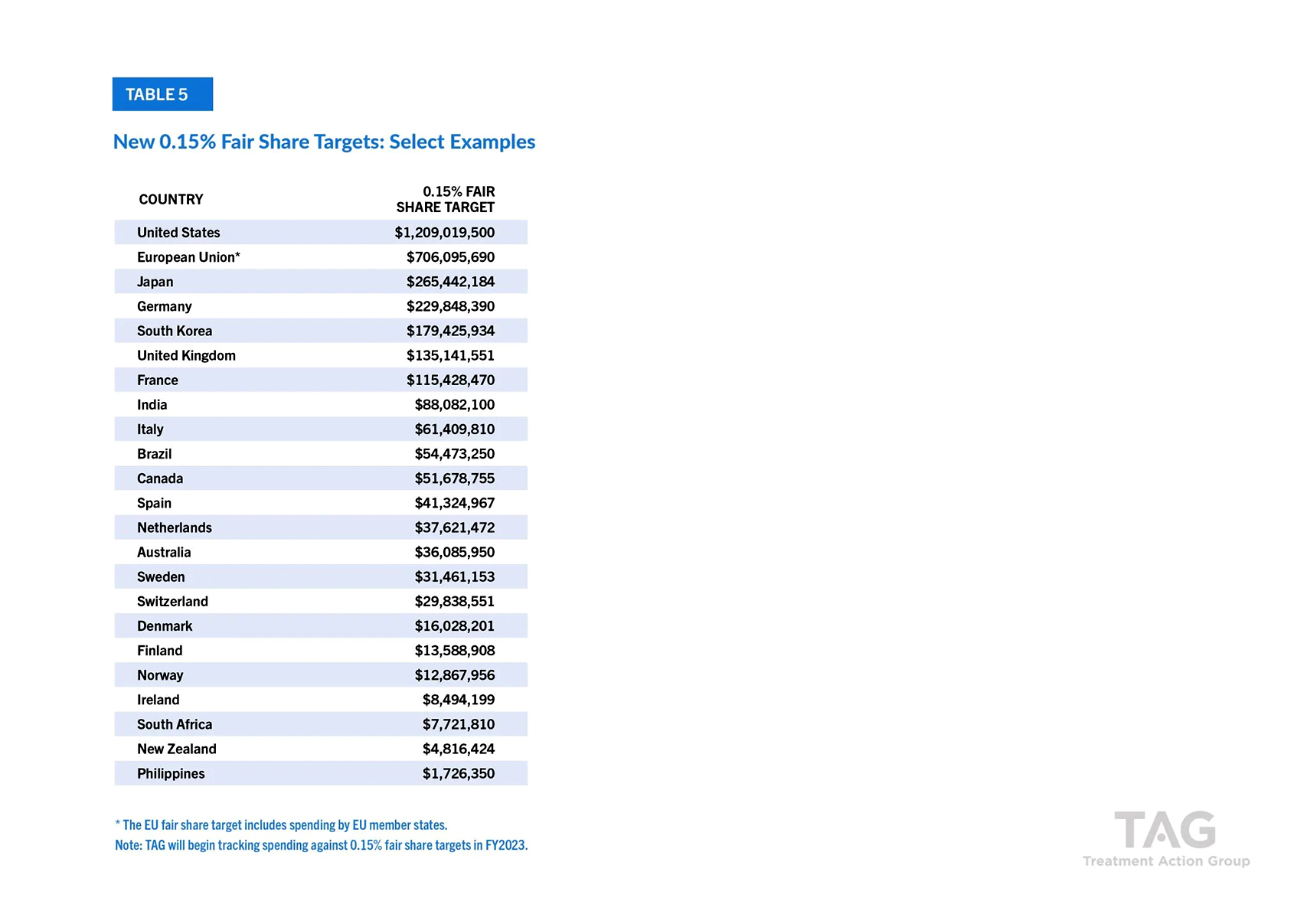SPOTLIGHT ANALYSIS
SA on brink of meeting crucial TB research funding targets while most countries falling short

SA is among only six countries to meet their ‘fair share target’ for funding tuberculosis research, according to a new report. Catherine Tomlinson unpacks what the report tells us about investment in TB research in South Africa.
South Africa is one of only six countries to ever meet its “fair share target” for funding tuberculosis (TB) research, according to a Treatment Action Group (TAG) report published this week. In absolute terms however, South Africa’s contribution is small change compared to investments into TB research made by the top two contributors, the United States government and the Bill and Melinda Gates Foundation (BMGF).
In addition to outlining who is funding TB research around the world, the data represented in the new TAG report also makes it clear that the world is missing the targets for research funding set by the United Nations (UN).
The news that funding for TB research continues to miss targets comes only a few months after the UN convened its second-ever High-Level Meeting on Tuberculosis. At the first UN High-Level Meeting on TB (held in 2018) countries committed to expand funding to support research and development of new health technologies and tools to combat TB to $2- billion annually. However, this commitment remains unmet, with annual spending on TB research reaching only half of this target ($1-billion) in 2021 and 2022, according to the TAG report.
At this year’s UN High-Level Meeting on TB, governments recognised that — following years of under-investment in TB research — more money would now be needed to give the world a shot at meeting the Sustainable Development Goal to end the TB epidemic by 2030. Governments promised in a Political Declaration to scale up financing for TB research to $5-billion annually by 2027.
Who is funding TB research?
Of the $1-billion invested in TB research in 2022, the United States government was by far the biggest contributor with investments of $436-million. 86% ($377-million) of the US’s investment came from the US National Institutes of Health. The second largest investor in TB research was not another government, but the Bill and Melinda Gates Foundation (BMGF — a philanthropy) which gave $154-million to TB research in 2022. Together the US government and the BMGF accounted for around 57% of all global investment in TB research in 2022.

(Image: Treatment Action Group 2023 Report on TB Research Funding Trends / Spotlight)
What is SA’s fair share and are we meeting it?
One difficulty with global targets such as the old $2-billion target and the UN’s new target of $5-billion per year by 2027, is that it is not obvious who should contribute how much.
A solution endorsed by TAG, the Stop TB Partnership, and others, is to use what they are calling “fair share” targets for spending on TB research. These targets were set at 0.1% of a country’s gross domestic expenditure on R&D (Gerd) in 2018. Gerd is the total amount of money a country invests in all forms of research and development. Had all countries met their fair share targets from 2018 to 2022, the world would have collectively met the $2-billion annual target set in 2018.
Using this framework, South Africa’s fair share target was $4.6-million per year — around R69-million (using the average exchange rate from 1 January 2018 to 1 January 2023: $1=ZAR15). Having met this target in 2018 and 2021, South Africa is one of only six countries to have met its fair share target in at least one year since 2018.

(Image: Spotlight)
After meeting its fair share target in 2018, a decline in South Africa’s TB research funding was observed from 2019 through 2020. South Africa’s TB research spending once again met the country’s fair share target in 2021, while in 2022, 91% of the target was met.
While the cause of the funding decline observed in 2019 and 2020 is not clear from data collected by TAG, the increase seen in 2021 was attributed to first-time reporting to TAG by South Africa’s National Research Foundation (NRF) and National Health Laboratory Services (NHLS).
If South Africa had met its fair share target in each year from 2018 through 2022, it would have invested $23-million in TB research over the five-year period. Its actual investments over the period, according to the TAG report, came to $18-million (R270-million), or 79% of the country’s five-year target.
While South Africa is doing better at reaching its fair share target than most countries, its investment in research is relatively small in absolute terms. The country’s investment in TB research in 2022 was roughly 1% of that from the US government and less than 0.5% of total global investment.
Who is funding TB research in South Africa?
In 2022 South Africa spent $4.2-million on TB research, or R68.6-million (using the average annual exchange rate for 2022). Six public entities reported on their 2022 TB research spending to TAG: the Department of Science and Innovation (DSI), the South African Medical Research Council (SA MRC), the Council for Scientific and Industrial Research (CSIR), the Technology Innovation Agency (TIA), the NRF, and the NHLS.
The six public entities reported spending money on TB research with funding that originated from the DSI, the SA MRC, and the NHLS. The DSI and the SAMRC respectively invested R34.8-million and R33.8-million in TB research in 2022, while the NHLS invested R50-000.
In addition to investments made by South Africa’s government, South African research units also attract substantial funding for TB research from international funders such as the US National Institutes of Health, the Wellcome Trust, the Bill & Melinda Gates Foundation, and the European & Developing Countries Clinical Trial Partnership.
How were South Africa’s TB research investments spent in 2022?
The R34.8-million invested in TB research from funds originating from the DSI was invested into TB research through the NRF (R16-million), the South African TB Research Innovation Initiative (R10-million), TIA (R4.5-million), the BRICS STI Framework Programme (R3-million), and the CSIR (R700-000). The R16-million given to TB research via the NRF was spent across 98 grants with an average grant size of R164,000.
The R33.8-million invested in research by the SA MRC, was spent across 19 grants averaging R1.8-million. The largest grant of R6-million supported research at the University of Cape Town conducted as part of the Regional Prospective Observational Research in Tuberculosis (RePORT) initiative. RePORT is an international TB research consortia that supports local research in participating countries, as well as in-country and international data sharing and collaboration.
The South African government spent more money on basic science than any other research area in 2022. Of every R1 invested into TB research, 34 cents supported basic science, 28 cents supported research into new medicines, 18 cents went to operational and epidemiological research, 11 cents supported diagnostics research, 8 cents went to vaccine research, and 1 cent supported research-related infrastructure.
What is South Africa’s new fair share target?
Given the new $5-billion funding target committed to at the 2023 UN High-Level Meeting on TB, the fair share targets have been updated. Countries are now being called on to contribute 0.15% of Gerd to TB research. (As the new national targets take account of the 40% growth in global Gerd spending since the last targets were set, they are not equivalent to 1.5 times the old targets.)
South Africa’s new fair share target, which is set in purchasing power parity US dollars, is $7.7-million.

(Image: Treatment Action Group 2023 Report on TB Research Funding Trends / Spotlight)
At the 2023 UN High-Level Meeting, South Africa’s Health Minister Joe Phaahla called on countries to meet the promises set out in the meeting’s Political Declaration, which included a commitment to mobilise $5-billion in funding by 2027. “Let us use this High-Level meeting as an opportunity to reinvigorate our commitment, to pledge our resources, and to redouble our efforts. A world without TB is not just an aspiration but an attainable reality, and we stand ready to play our part in making that vision a shared triumph. Let us commit to the implementation of the Political Declaration,” said Phaahla. DM
Disclosures: (1) Tomlinson did paid work on the TAG report on TB research funding trends that is cited throughout this analysis article. (2) The BMGF is mentioned in this article. Spotlight receives funding from the BMGF, but is editorially independent. Spotlight is a member of the South African Press Council.
This article was produced by Spotlight – in-depth, public interest health journalism.




















Comments - Please login in order to comment.